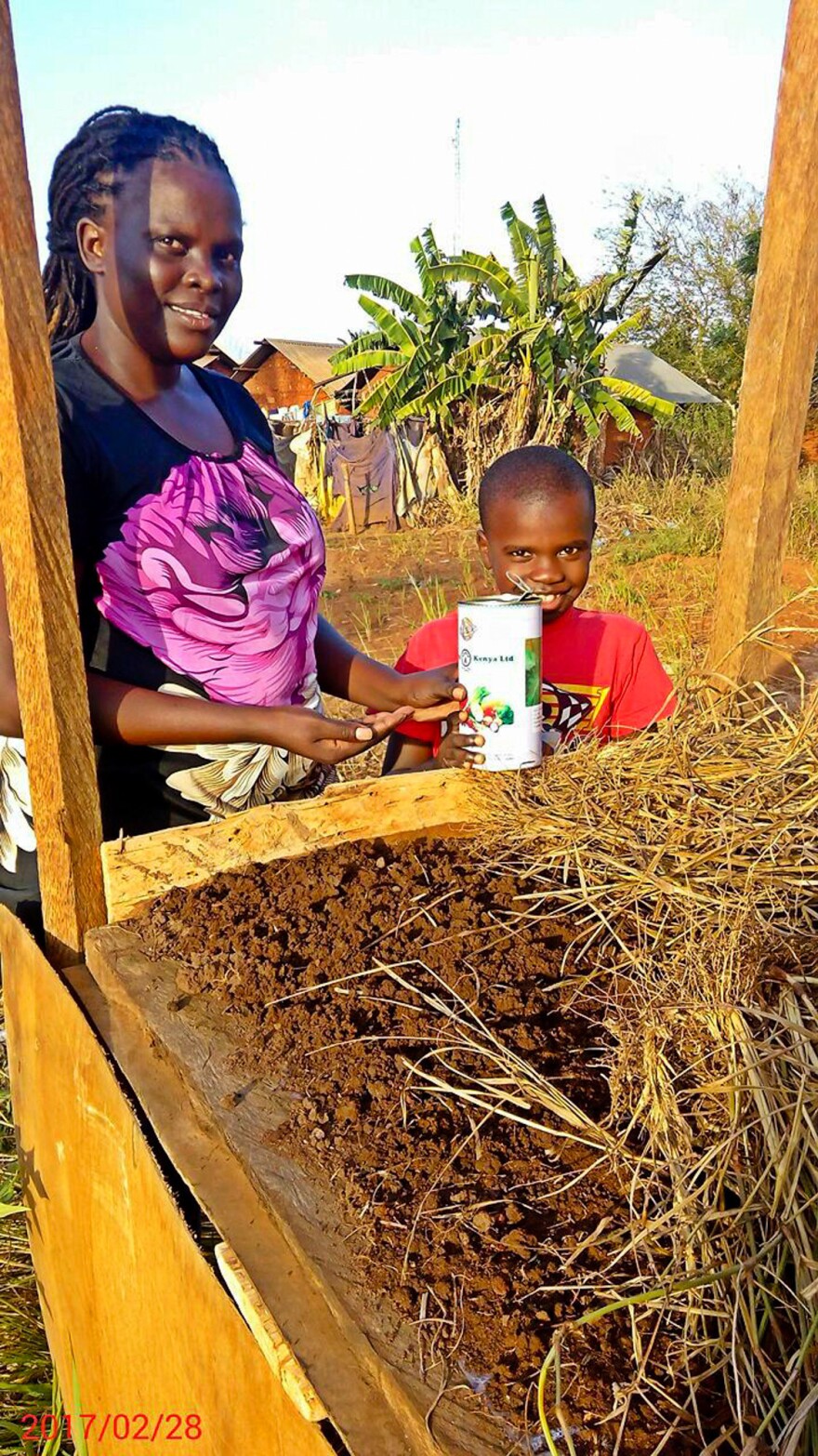"I never thought farming would be my venture," says my sister, Faith.
But perhaps it was her destiny.
Our parents were farmers (and teachers as well) in a small farming community on the coast of Kenya, living in Mabafweni village in Kwale County. Their five children had to get up at 5 a.m. during growing season, roughly April to June, to weed grass from the fields and dig up the soil by hand to make it soft. Our parents took care of the big worries, like what to plant and how to manage the farm. Lots of Kenyans have a similar experience. Over 75 percent of Kenyans farm.

Faith has a college education and works in the city as a counselor for patients with HIV at Kwale County hospital. Ever since she started working in 2009, family and friends assumed that she was financially stable. People would call her "Sonko" — the name of a Kenyan senator whom Kenyans think of as a rich man. Because that's how people thought of Faith. She has a job, so she must be comfortable.
The truth was that she is struggling to meet her basic needs and those of her two sons. And no one seemed to understand that. Her problem is a too small salary: the equivalent of about $200 a month. To make a decent living in the city of Kwale in Kwale County, where she lives, a single person needs to make $500 or more a month.
Faith would use her salary to pay bills. Then she'd have nothing to live off until the next payday. She tried lots of businesses to boost her income — selling second-hand clothes, for example. But the businesses would fail. In a pinch, she'd turn to our mother for help.
Last year, I visited Faith, who lives on a small piece of land, about a quarter of an acre. Could farming be a viable business, I wondered. Faith decided she'd give it a try. She didn't want to bother our aging mother for help again.
Being a farmer is a lot harder than when we were kids. Climate change makes it harder to predict weather, so farmers have a lot more worrying to do even before spring planting season. Back in the 1980s, when we were kids, the rains were consistent. Also, the soils were bit healthier than they are today. I remember they were dark brown, but, over the years, their color has changed to a lighter brown because the soil's nutrients have been depleted. Farmers have repeatedly grown crops in the same soil without adding fertilizers, which are expensive.
That didn't stop Faith. She's getting advice from an agricultural extension agent from Kwale County about the a-to-z of growing crops and how to deal with drought (the solution was buying a drip irrigation kit).
Faith needed about $1,000 to get started. I lent her part of my cash prize for winning the 2017 Emerging Sustainability award, and she took out a loan for the rest. She should be able to repay the loans when the crops are ready to sell at the market in two to three months.
She's starting small with just four crops: kale, sweet peppers, tomatoes and a smaller portion of spider weed – a leafy green vegetable that is generally considered a weed but that is actually quite high in vitamins and micronutrients. Also called African cabbage, it fills the role of spinach on the dinner plate. The extension agent gave recommendations for a variety of tomato, for example, that is drought resistant and less attractive to pests than other types. She bought the seeds and made a nursery to get them started, then transplanted the seedlings to her quarter acre.
"As I make the baby steps in it, I am excited and at the same time curious to see the end of it, whether I meet my target or not," Faith told me. "The biggest risk right now is balancing farming and working." Since she lives close to her work place, she is able to keep up with her farm. She opens her drip in the morning to irrigate her plants and later in the evening she repeats the process. But she's worried about what might happen: "I am afraid once my employer gets to hear my progress in my shamba [garden], they may decide to transfer me just to frustrate me."
Of course there are risks in farming. Some Kenyans have become rich from farming but others that have continued to be poor as their small farms do not produce enough.
"The fear is making sure I meet the market demand once I start rolling," says Faith. "I know I will be successful because I have done all my extension officer has advised and I am open to learning. I want to make it in farming. I want to be successful badly and that urge will pull me to success."
Faith is looking forward to becoming one of the most successful woman farmers in Kwale town. And she's already a role model. Some of the women she works with have heard about her farm and are asking her how they can start their own farms.
And Faith has already learned a few lessons: that you can be a farmer even with a small plot of land. And that life is about making choices.
Esther Ngumbi is a post-doctoral researcher at Auburn University in Alabama. She serves as a 2017 Clinton Global Initiative University Mentor for Agriculture, and is a 2015 Food Security New Voices Fellow at the Aspen Institute. Reach her @EstherNgumbi
Copyright 2021 NPR. To see more, visit https://www.npr.org. 9(MDEwMTk5OTQ0MDEzNDkxMDYyMDQ2MjdiMw004))












